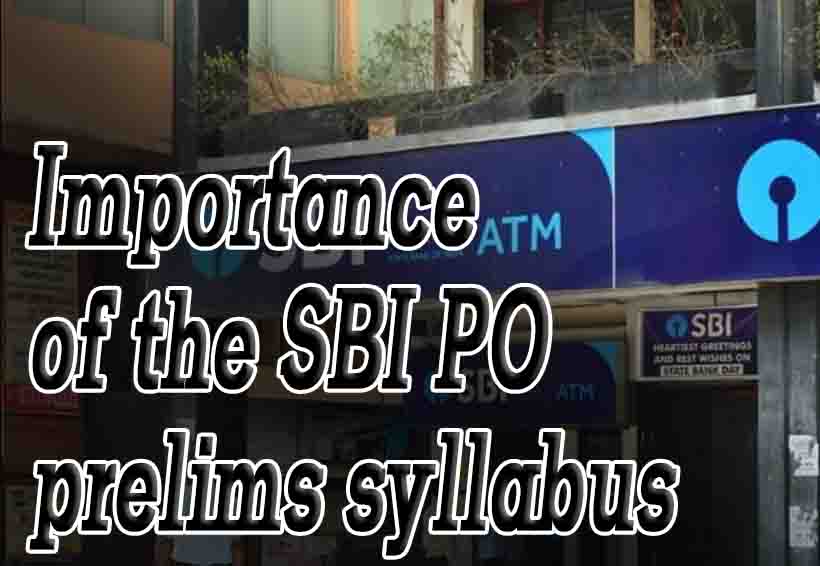SBI (State Bank of India) is a multinational public sector bank in India. If you want to begin your banking career, you must start by giving the PO (Probationary Officer) exam. As a probationary officer, your duties and responsibilities are to oversee the employees and manage loans, and financial resources. Also, you can attain medical allowances, lease or rental and many other benefits besides the basic salary pay. But to acquire all of that, you must clear the examination and interview or group discussions. So, you must be well-informed about the prelims syllabus. SBI PO syllabus is divided into sections comprising quantitative aptitude, English language and reasoning ability. But what is the importance of these sections? In this article, you will understand the benefits.
- English language: English plays a crucial role in various competitive exams, including banking. And the language section is further divided into grammar, comprehension and vocabulary. The language exam section allows the committees conducting the exam to know your proficiency in the language. It determines your speaking skills, writing skills, understanding, analysing and power of listening. Since most of the bank exams in India have an English section, the SBI PO exams are conducted in English medium. Besides examining the language skills, it decides the presence of mind, judgement, student’s mental alertness and quick-thinking power. In case you don’t know the English language properly, it can be challenging to give the exam. You can increase your vocabulary by watching English movies or episodes, reading English newspapers, participating in discussions, reading English novels and trying new words. You can prepare by noting down challenging words and bringing them into use. When it comes to grammar, you can look for grammar books with topics like sentence construction, synonyms-antonyms and grammatical rules. You need to practice and correct yourself instinctively. You can score excellent marks in comprehension if you have an excellent vocabulary. English is essential when you don’t know the regional language. If you are posted anywhere in India, you must be able to communicate in English at least.
- Quantitative aptitude: Quantitative aptitude, also known as QA or Quant, is considered a challenging part of the syllabus. If you are fantastic in numerical ability, you can certainly get excellent scores in this section. Some topics include simplification, data interpretation, number series, simple interest, compound interest, average, percentage, probability, time, speed and distance, and profit and loss. Probationary officers must be mentally alert to the changes happening around them, and the quantitative aptitude tests examine that. A candidate with quantitative aptitude must manage problems and look for solutions. You must also be good at dealing with and analysing various numerical data. Whether it is percentages, formulas and graphs, it is essential to be highly accurate. You must practise the Quantitative aptitude section by previewing the previous year’s papers. To save time in the examination, you must learn quick calculation methods for proper answers.
- Reasoning ability: The reasoning section is crucial for every bank examination. It is a must to prepare this section. Although it can be tricky, you must practise a lot to score excellently in this section. This section also judges mental alertness and measures an individual’s numerical, mental and verbal ability. It is a must for a candidate to concentrate on speed before attempting this section. Your learning approach must be high, and you must practise with mock and previous papers, allowing you to decrease the time taken for problem-solving and enhance speed. If you score good marks in the reasoning ability section, it means you can make swift decisions under pressure.
The sections mentioned above are included in the prelims syllabus. SBI PO prelims have a qualifying nature, and all the candidates require a minimum cut-off to clear this exam, unlike the main examination.

